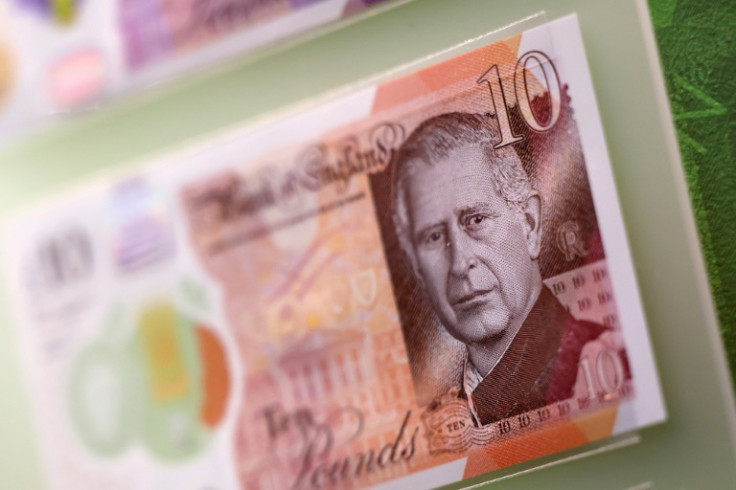
The Bank of England is widely expected to keep its main interest rate at a 16-year high Thursday, rejecting a cut as inflation remains well above target despite recent slowing.
Analysts predict that the BoE will keep borrowing costs at 5.25 percent, one day after official data showed UK annual inflation slowing to its lowest rate since September 2021.
In a busy week for central banks, the Federal Reserve on Wednesday held US interest rates steady, but left open the door to three interest rate cuts before the end of the year.
Market watchers are forecasting the Fed and European Central Bank to start cutting rates in June, while the outlook for the BoE appears less clear, with a first reduction seen possibly as late as August.
"The UK faces some of the same issues as the Fed: elevated post-pandemic inflation rates and an unclear economic outlook," noted Kathleen Brooks, research director at XTB trading group.
European Central Bank president Christine Lagarde on Wednesday warned of the risk of acting "too late" on interest rate cuts, reaffirming the likelihood that the eurozone's first reduction in borrowing costs would come in June.
Thursday also sees rate calls from the Swiss and Norwegian central banks. While analysts see a chance of a cut from the Swiss National Bank, they expect Norges Bank to leave borrowing costs unchanged.
While most central banks are eyeing rate cuts, the Bank of Japan this week delivered a rare hike in borrowing costs.
The BoJ on Tuesday pulled the plug on its ultra-aggressive monetary stimulus programme, hiking rates for the first time since 2007.
Its outlier policy of negative rates and massive asset purchases was aimed at jump-starting economic growth and price rises after "lost decades" of stagnation and deflation in Japan -- the opposite problem faced recently in most advanced economies.
In the UK, inflation fell more than expected in February, official data showed Wednesday, fuelling speculation that the Bank of England would start cutting interest rates in the coming months.
The Office for National Statistics said inflation reached 3.4 percent last month -- the lowest level in nearly 2.5 years -- as growth in food prices eased further.
The drop may give a boost to embattled Prime Minister Rishi Sunak and his Conservative party as they face the prospect of losing a general election this year amid discontent over the country's cost-of-living crisis.
Britain entered recession in the second half of last year but with inflation remaining well above the BoE's two-percent target, the central bank is widely expected to freeze interest rates for a few months longer.
Companies and individuals have been hit by soaring interest rates as retail banks pass on their higher cost of money.
At 5.25 percent, the BoE's main rate is the highest level since February 2008, hurting borrowers but handing a boost to savers.
The BoE hiked its key interest rate 14 times between late 2021 -- when it stood at a record-low 0.1 percent -- and the second half of last year.
Global inflationary pressures built up after the lifting of Covid lockdowns led to bottlenecks. Energy and food prices went on to skyrocket following the invasion of key grains producer Ukraine by major oil and gas provider Russia in early 2022.
The UK's inflation rate has tumbled since striking a 41-year peak of 11.1 percent in October 2022.







